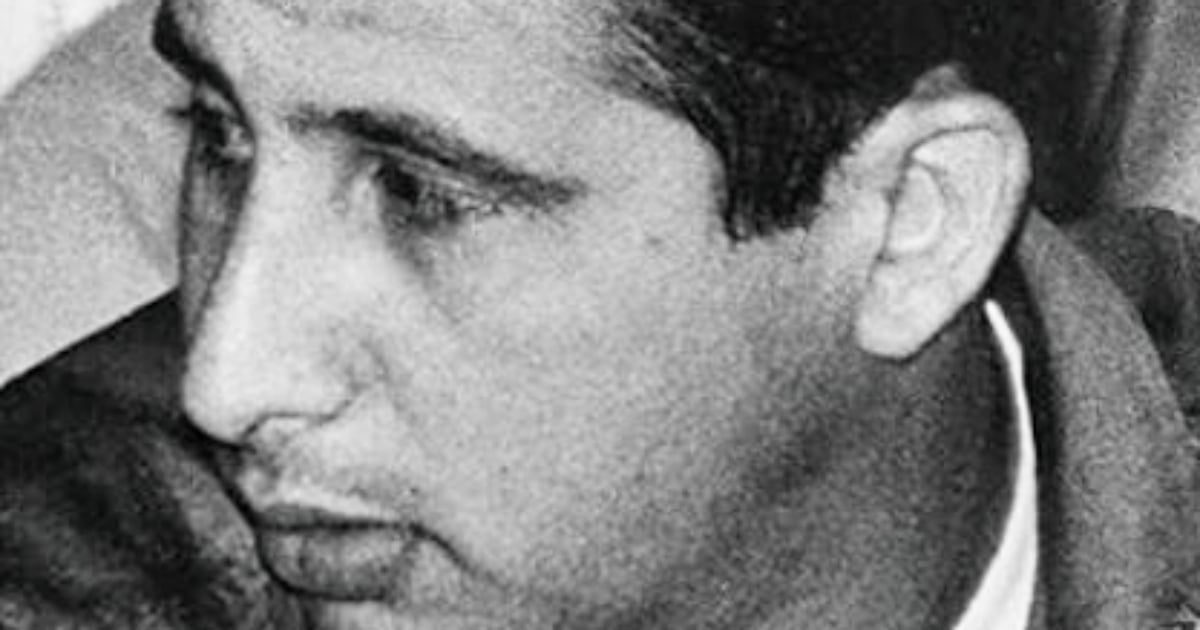
Diocles Torralba González He died this Thursday in Havana as a result of a metastatic and aggressive cancer that, in a short time, caused a fatal outcome.
The news was revealed by the Cuban journalistWilfredo Cancio Isla, who sketched a portrait of the leader and victim of Castroism on his blogStrong coffee.
Historical figure of the so-called “Cuban revolution”, Torralba González came down from theSierra Maestra with the ranks of captain of the Rebel Army, at just 20 years old. The subsequent 64 years, until the date of his death, were marked by the rise and fall of his power within the regime established by the dictator.Fidel Castro.
Vice President of the Council of Ministers Minister of Transport, Diocles was removed from his positions in June 1989, in a case that had implications withthe famous Cause No. 1 in which the generalArnaldo Ochoa and other senior military and counterintelligence commanders were sentenced to death and long prison sentences for drug trafficking.
Friend of Ochoa and the brothersAntonio andPatrick of the Guard, the “thunder” (dismissal) of Diocles was one of the most covered by the media and known by the population, in a country where purges and settling of scores among the leadership used to (and usually) happen in secret.
Sentenced to 20 years on charges of embezzlement, abuse of authority and misuse of resources, the former trusted man of the Castro brothers spent half of it in prison and, once free, sank into anonymity.
His dismissal as Minister of Transportation and arrest made headlines in the international press in the summer of 1989, as it coincided with the so-called Cause No. 1 scandal, the judicial process and the execution of General Ochoa, Colonel Antonio de la Guardia and two other soldiers on July 13 of that year.
Although his person was not tried in said Case, his name did resonate during the famous trial with which the Cuban regime washed its hands of the accusations made of participating in drug trafficking activities, linked to the Medellín Cartel and its famous leader and founder,Pablo Escobar.
Military trained at the Frunze Academy in the Soviet Union, where he graduated with honors, Torralba González meets Ochoa there and a great friendship is forged between them.
As Cancio recalled, Diocles was the one who supervised from theRevolutionary Armed Forces (FAR) the failed operation that in 1966 took Ochoa and 15 Cuban soldiers to the coast of Falcón, in Venezuela, to reinforce the guerrilla that was facing the government ofRaul Leoni.
Elected member of the Central Committee at the First Congress of theCommunist Party of Cuba (PCC) In 1975, Torralba González assumed important government and political tasks. He served as Minister of the Sugar Industry between 1977 and 1985, the year in which he was appointed Minister of Transportation, his last position of trust within the Cuban regime.
On June 12, 1989, one day before the arrest of General Ochoa and others involved in Case One became known, Diocles fell into disgrace and was “demonstrated” for his alleged lifestyle, described as “licentious and corrupt” by the leadership of a regime that allowed such “vices” to those it considered “loyal”, and that persecuted those labeled as “deviant”.
As mentioned by the Cuban writer in exile,Carlos Rodríguez Búa, on his blogMemories of a Cuban, the official newspaperGranma published one of its typical defamatory editorials against Diocles, in which, in addition to a long list of "mistakes committed", it suggested the leader's homosexuality, indicating that citizen Torralba also lived with another man in the same house.
Tried for alleged crimes of embezzlement, mismanagement of resources, abuse of authority, illicit occupation of buildings and falsification of public documents, the historic leader served time in the Guanajay prison. Released ten years later, Diocles continued his life in anonymity.
Born in 1939 in Palma Soriano, former province of Oriente, the man who was a member of the “26 of July” Movement died in his apartment in Vedado, in Havana at the age of 84 and with a life story representative of the intrigues, injustices and cruelties that They nest at the top of the Cuban regime.
As confirmed by family sourcesStrong coffee, Torralba died at 10:15 pm, suffering from complications from colon cancer that had also affected other vital organs. At the time of writing this note, the tragic event has not been reported in the official media in Cuba.
He is survived by his widow Patricia and his children Diocles, Elery, Amy, Rafael and Diocles II, and his siblings Rosa and Tomás. His daughter María Elena died in the United States years ago. In compliance with his last wish, his remains will be cremated.
What do you think?
SEE COMMENTS (1)Filed in: